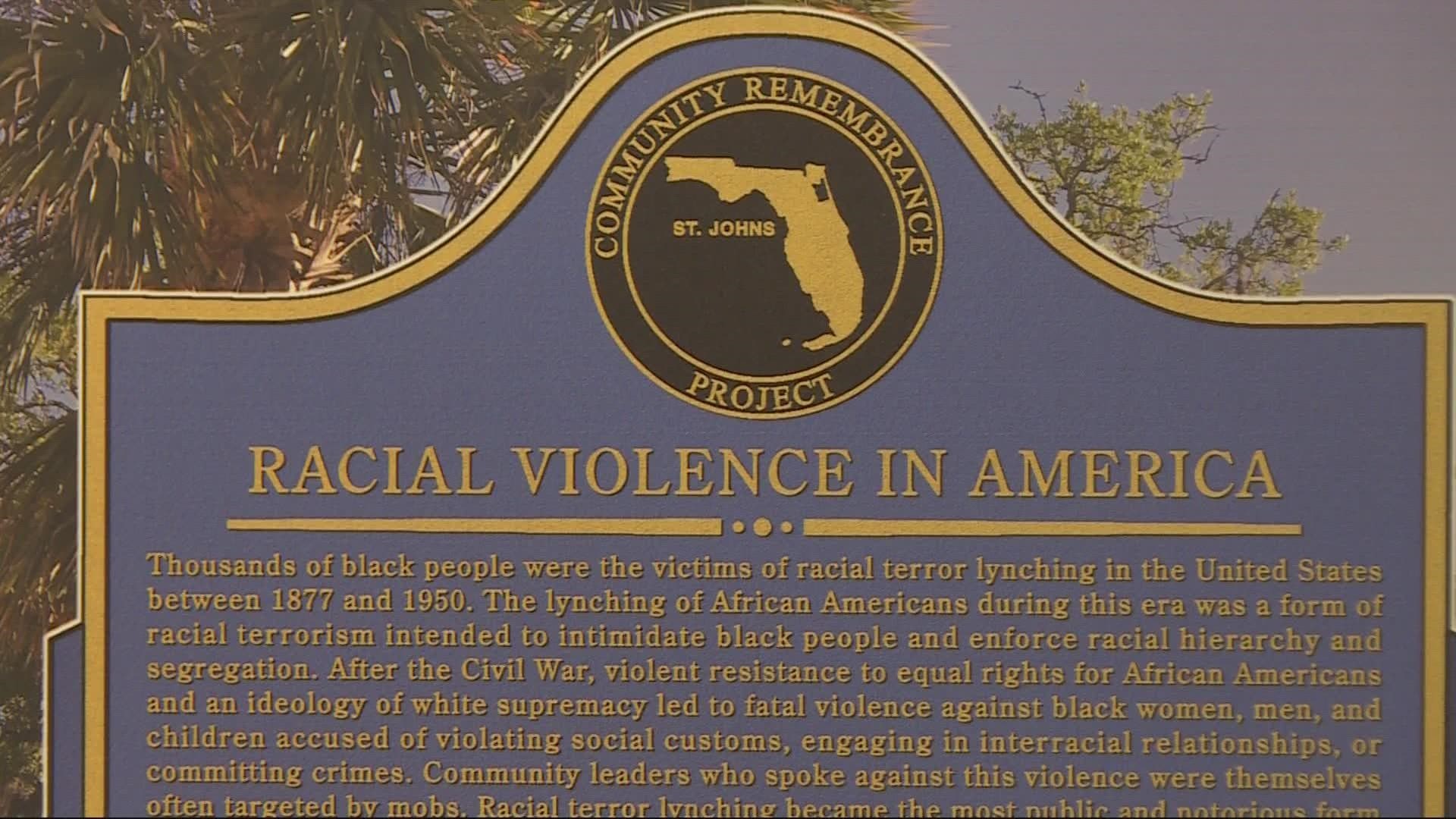ST. JOHNS COUNTY, Fla. — Regina Gayle Phillips of St. Augustine felt like she knew a man she never met.
His name was Isaac Barret. His death was the only recorded lynching in St. Johns County. Barret was hanged without a trial, accused of assaulting a white family.
Phillips and others in St. Augustine worked for years to remember him as part of a national project. They collected soil from where Barrett was killed in the tiny Orangedale community along the St. Johns River and installed a marker in that remote spot.
Days after the ceremony in 2018, she received the startling news.
"It was just gone," Phillips said. "It was stolen. That part was very difficult. Very emotional."
Someone, or some people, didn’t want that maker there.
"It was a heaviness that came over," Phillips noted. "It was like losing a family member because we had been connected to it for so long."
Thinking it would be better to put a marker in Downtown St. Augustine, 20 miles away, the St. Augustine City Commission unanimously approved it for the Plaza.
But then the effort to set up the marker came to a halt.
"It was like the city was putting the brakes on," Phillips remembered.
That’s because then George Floyd was murdered in 2020. Racial tensions were high across the nation and in St. Augustine. In addition, protests were loud and violent when two confederate monuments were removed from the city’s plaza.
It was the same place where the lynching marker was planned for. Two years later, the marker was still in Phillips’ closet.
"We felt like we were just pushed in the corner," she told First Coast News.
However, just days ago, that marker was finally installed.
It’s not in the plaza, but it's next to the parking garage. It's within sight of the fort and the city gates, in an area with lots of foot traffic.
There was no big fanfare at the ceremony.
"We didn’t’ want to have people coming and protesting and marring the sacredness of that," Phillips said.
There is a plaque next to the marker to provide context, explaining why the marker about a lynching on the other side of the county stands where it does, and some of the rest of the story.
It's the story of a man and a marker who were both targets of racial discrimination.
Phillips believes this marker will likely not be messed with.
"Mainly because it’s in a very public space," she said.
It's a space that can tell the ugly part of our history and recent past.
"I believe it’s a good opportunity for education," she nodded.

